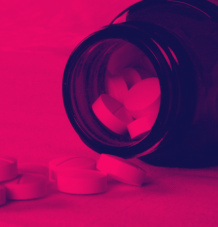Probiotics may help depression
 Researchers say probiotics may help treat depression.
Researchers say probiotics may help treat depression.
Probiotics either taken by themselves or when combined with prebiotics, may help to ease depression, suggests a new meta-analysis by British researchers.
Foods that broaden the profile of helpful bacteria in the gut are collectively known as probiotics, while prebiotics are compounds that help these bacteria to flourish.
A two-way relationship exists between the brain and digestive tract, known as the gut-brain axis. The possibility that the microbiome - the range and number of bacteria resident in the gut - might help treat mental ill health has become a focus of interest in recent years.
To explore this further, the researchers searched for relevant studies between 2003 and 2019, which looked at the potential therapeutic contribution of pre-and probiotics in adults with depression and/or anxiety disorders.
Out of an initial haul of 71 studies, just 7 met all the criteria for inclusion. All 7 investigated at least 1 probiotic strain; 4 looked at the effect of combinations of multiple strains.
In all, 12 probiotic strains featured in the selected studies, primarily Lactobacillus acidophilus, Lactobacillus casei, and Bifidobacterium bifidium. One study looked at combined pre-probiotic treatment, while one looked at prebiotic therapy by itself.
Every study showed a significant fall or improvement in anxiety symptoms and/or clinically relevant changes in biochemical measures of anxiety and/or depression with probiotic or combined pre-probiotic use.
Of the 12 different probiotics investigated, 11 were potentially useful, the findings showed.
Probiotics may help reduce the production of inflammatory chemicals, such as cytokines, as is the case in inflammatory bowel disease, suggest the researchers. They may also help direct the action of tryptophan, a chemical thought to be important in the gut-brain axis in psychiatric disorders.








 Print
Print